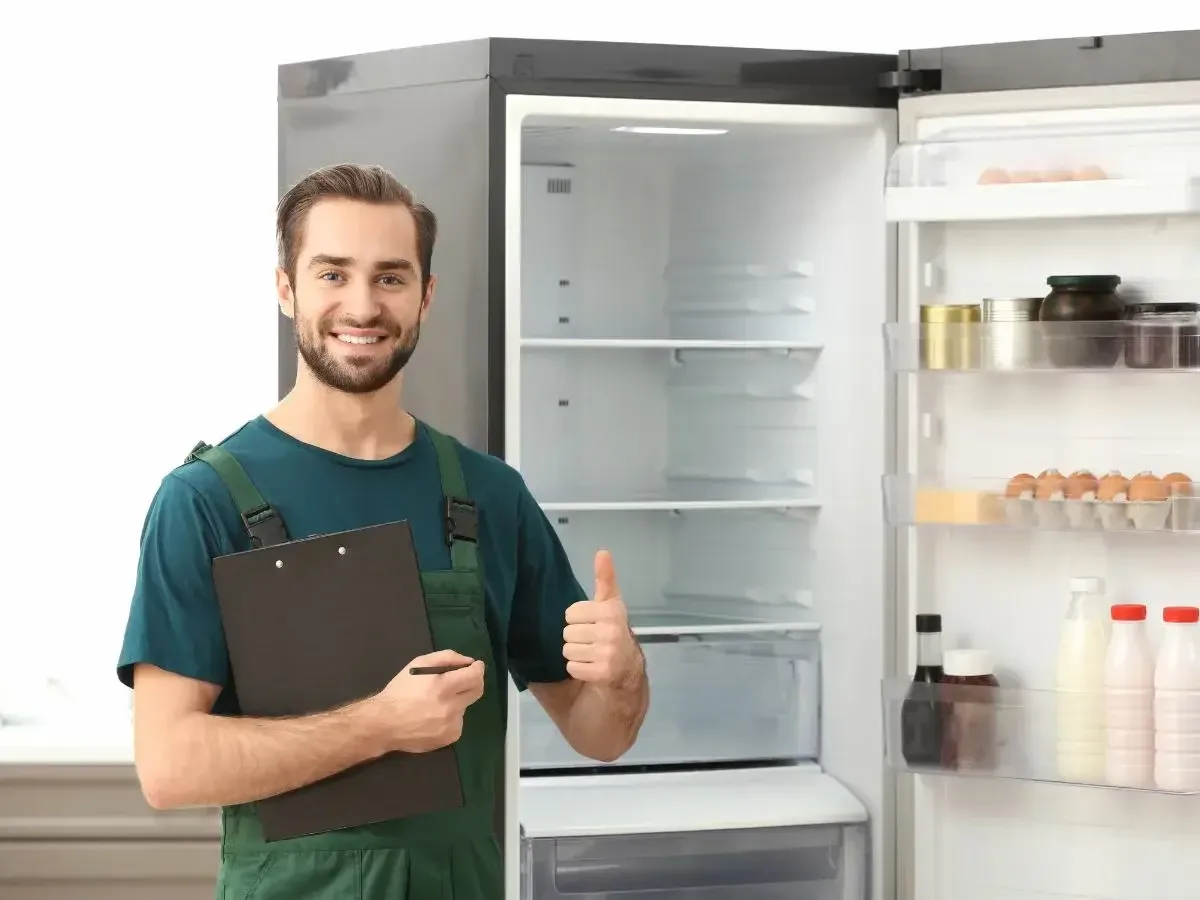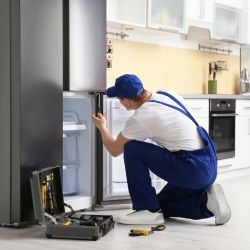
Owning an LG refrigerator means enjoying cutting-edge technology and reliable performance. However, even the best appliances sometimes need a little TLC. This guide will walk you through common LG refrigerator issues, DIY troubleshooting tips, and when to call a professional for help if LG refrigerator not working
Common Issues with LG Refrigerators
- Not Cooling Properly: A warm refrigerator is a major red flag. Causes can range from dirty condenser coils to faulty door seals.
- Ice Maker Malfunctions: Ice makers are a blessing, but they can also be a source of frustration. You might experience no ice production, frozen ice buildup, or odd-tasting ice.
- Water Leakage: Finding water puddles around your fridge is never fun. This issue often stems from clogged drain lines or damaged water filters.
- Noisy Operation: LG refrigerators are designed to run quietly. Loud humming, buzzing, or clicking sounds indicate a problem that needs attention.
DIY Tips for Repairing LG Refrigerators
Before calling a technician, there are simple and safe troubleshooting steps you can take at home:
- Cleaning the Condenser Coils: Dirty condenser coils prevent your refrigerator from releasing heat, leading to inefficiencies and cooling problems. Locate the coils at the back or bottom of your fridge and gently clean them with a vacuum cleaner or brush.
- Checking and Replacing the Door Gasket: The rubber seals around your refrigerator doors ensure cool air stays in. Inspect them for tears, cracks, or looseness. If damaged, a replacement gasket is fairly easy to install yourself.
- Defrosting the Freezer: If frost builds up in your freezer, it may start impacting the ice maker or overall temperature regulation. Manually defrost your freezer by unplugging it and letting the ice melt naturally.
When to Call a Professional Repair Service
While DIY repairs can be effective for minor issues, some situations require professional expertise:
- Refrigerant Leaks: Refrigerant is the chemical that helps your fridge cool – leaks signal a more serious problem needing a technician’s care.
- Compressor Issues: The compressor is the “heart” of your refrigerator. Any malfunctions with this component typically require professional repair or replacement.
- Electrical Problems: If your refrigerator isn’t turning on, lights are flickering, or you suspect electrical wiring problems, call an electrician or appliance repair professional for safety reasons.
Preventive Maintenance Tips for LG Refrigerators
A little routine maintenance goes a long way in keeping your LG refrigerator performing its best:
- Regular Cleaning and Defrosting: Wipe down spills promptly, clean inside surfaces regularly, and manually defrost your freezer if it doesn’t have a self-defrosting feature.
- Temperature Control and Settings: Check your refrigerator and freezer temperature settings to ensure they’re within the recommended ranges.
- Checking Seals and Gaskets: Inspect the door seals for any signs of wear and tear to prevent warm air from entering your appliance.
- Proper Organization and Air Circulation: Avoid overpacking your fridge and freezer, which can obstruct airflow and make your appliance work harder.
Conclusion
By understanding some common LG refrigerator problems, trying your hand at simple repairs, and knowing when to seek professional help, you can keep your appliance in top condition for years to come. Remember, proactive maintenance is key to maximizing the lifespan of your LG fridge!
-
Why has my LG refrigerator stopped working?
Lots of things can cause your LG refrigerator to stop operating. Here are some of the most common culprits:
- Power supply issues: make sure the refrigerator is properly plugged in and that the outlet is receiving power. Check your circuit breaker to rule out any electrical faults.
- Faulty condenser coils: Dirty condenser coils can prevent efficient cooling. Locate the coils (usually at the back or bottom of the fridge) and clean them regularly with a vacuum and brush.
- Door seal problems: A damaged or loose door seal allows cold air to escape, forcing the refrigerator to work harder and potentially causing it to malfunction. Inspect the seal for any gaps or tears and replace it if necessary.
- Temperature control issues: Incorrect temperature settings or a malfunctioning thermostat can disrupt the cooling process. Make sure the temperature is set correctly and consider replacing the thermostat if it's faulty.
- Compressor problems: The compressor is the heart of your refrigerator's cooling system. If it's not working correctly, the fridge won't cool properly. Diagnosing compressor issues often requires professional assistance.
- Power supply issues: make sure the refrigerator is properly plugged in and that the outlet is receiving power. Check your circuit breaker to rule out any electrical faults.
-
How do I know if my LG refrigerator compressor is not workin
Here are some typical signs that your LG refrigerator compressor might be faulty:
- Refrigerator not cooling: If the fridge isn't maintaining the set temperature, even after checking other potential causes, the compressor might be the issue.
- Unusual noises: A malfunctioning compressor can produce humming, clicking, or grinding sounds.
- Compressor running constantly: If the compressor is running continuously without cycling off, it could indicate a problem.
- Warm condenser coils: If the condenser coils at the back or bottom of the fridge are not warm to the touch, the compressor might not be functioning.
If you suspect a compressor problem, it's crucial to contact a qualified technician for diagnosis and repair.
NB Remember, if you maintain your fridge regular maintenance it can stop many problems from happening. Keep the condenser coils clean, check the door seals periodically, and ensure proper ventilation around the refrigerator. If you encounter any issues you can't resolve yourself, don't hesitate to seek professional help.
